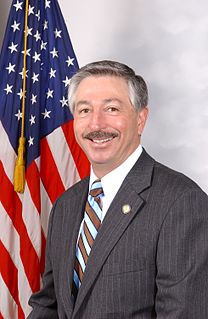A Quote by Rupert Murdoch
Some of our businesses use more energy than others, but our strategy everywhere is the same... first, reduce our use of energy as much as possible. Then, switch to renewable sources of power where it makes economic sense... And, over time, as a last resort, offset the emissions we can't avoid.
Related Quotes
There are a lot of different ways of building a prosperous society, and some of them use much less energy than others. And it is possible and more practical to talk about rebuilding systems to use much less energy than it is to think about trying to meet greater demands of energy through clean energy alone.
This curious faith is predicated on the notion that we will soon develop unlimited new sources of energy: domestic oil fields, shale oil, gasified coal, nuclear power, solar energy, and so on. This is fantastical because the basic cause of the energy crisis is not scarcity: it is moral ignorance and weakness of character. We don't know how to use energy or what to use it for. And we cannot restrain ourselves. Our time is characterized as much by the abuse and waste of human energy as it is by the abuse and waste of fossil fuel energy.
The sooner we switch away from carbon-based fuel and start relying on renewable energy sources available in the United States, the sooner we will grow our economy by creating the millions of new jobs that will come from retrofitting homes and businesses, building smart grids, renewable energy systems and planting trees and all the rest. We need to create a lot of jobs that can't be outsourced.
Sustainability is not just about adopting the latest energy-efficient technologies or turning to renewable sources of power. Sustainability is the responsibility of every individual every day. It is about changing our behaviour and mindset to reduce power and water consumption, thereby helping to control emissions and pollution levels.
The first and most important rule to observe...is to use our entire forces with the utmost energy. The second rule is to concentrate our power as much as possible against that section where the chief blows are to be delivered and to incur disadvantages elsewhere, so that our chances of success may increase at the decisive point. The third rule is never to waste time. Finally, the fourth rule is to follow up our successes with the utmost energy. Only pursuit of the beaten enemy gives the fruits of victory.
Too many of us dissipate our energy by being 'for all good causes,' attending meetings and passing resolutions, organizing and presenting petitions — all this effort to change others, when if we really got down to it we could use this energy to change ourselves… We become tired radicals because we use our weakest weapon: the ballot box, where we are always outnumbered, and refuse to use our strongest weapon: spiritual power.


































